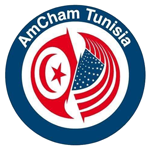Accelerating African Trade – The “Eco” of Liberalization
Africa, including the former French West African colonies, continues on promoting barrier free Pan African trade. Facilitating open trade and a common currency accelerates opportunities for the world’s fastest growing continent to prosper. Positive steps to increase African investment by releasing African reserves from the stewardship and use by French Treasury were announced this week by President Marcon. Simply put, as proposed, previously sequestered funds are now available for direct African investment. The proposed decommissioning of the French-linked West African CFA franc was also announced with the endorsement of the “Eco” as the replacement currency. One expected positive outcome of liberalization is continuation of promoting a common currency, opening pan -African trade and accelerating trade flows.
Africa Trade Alliances – The World’s Largest since the World Trade Organization
Parallel paths to promote African autonomy continue with regional trade alliances. Countering global trends towards nationalization, North Africa including Tunisia, increasingly unite as trade partners. The West African Economic and Monetary Union and the Economic Community of West African States (ECOWAS) minimize trade barriers and harmonize customs practices. English and French speaking Africa links formalized in March 2019 with the African Continental Free Trade Area (AfCFTA) – the world’s largest since the 1994 World Trade Organization. As perspective COMESA, similarly with its 21-nation membership serves 560 million people links Tunisia, Egypt and Madagascar improving the focus on Technology and Biotech developments.
Gateway into Global Markets – Tunisia
Boosting inter-regional and global trade frameworks is constructive of the continent. Unleashing Africa’s long-stymied economic potential strengthen supply chains and spread shared expertise is both aspirational and realistic. Increased Pan-African trade flows increasingly funneled into Europe and the United States from gateway countries like North Africa led by Tunisia, are irreversible. The Tunisian and other American Chamber of Commerce actions, guide export expansion, ratify opportunities for Pan African business and trade-linked profitably – gradually erasing the shadow of a colonial past.





